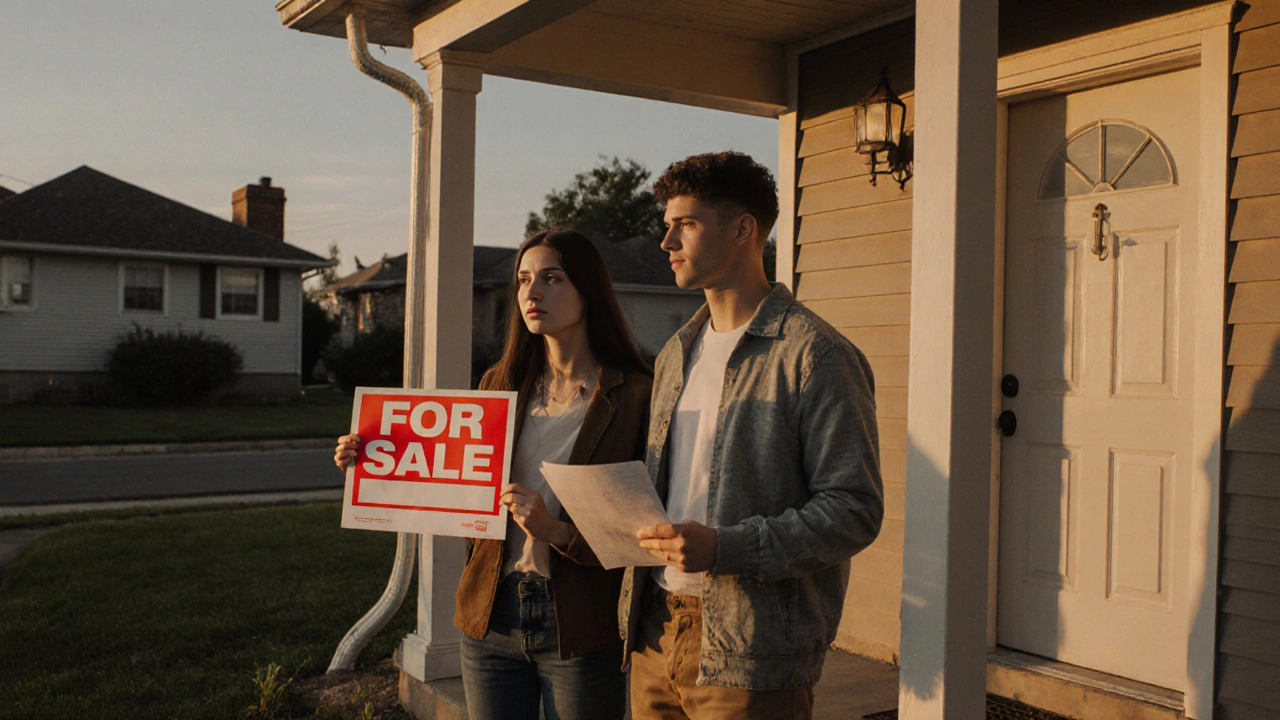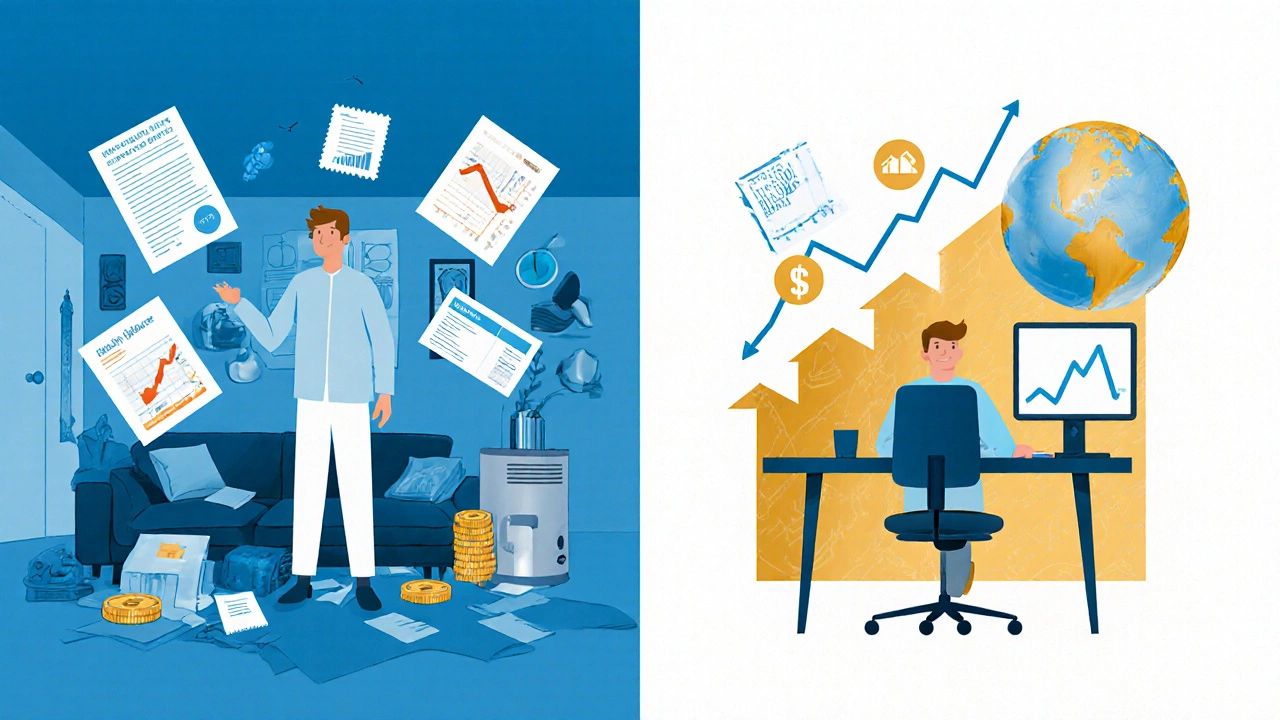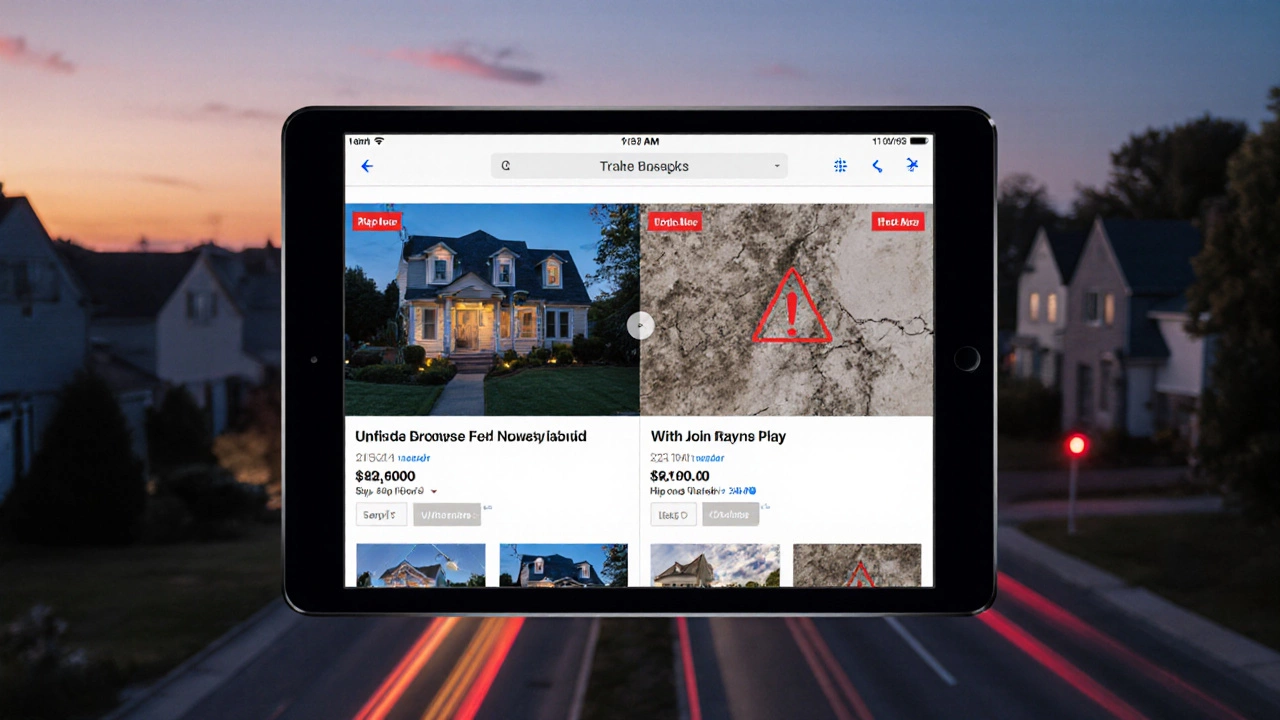Is It Really Smart to Buy a House in 2025?

Nov, 21 2025
Rent vs. Buy Calculator
Is it better to buy or rent?
Compare your specific situation to determine which option makes more financial sense based on 2025 housing market conditions.
Buying a house used to be the default next step after college, a steady job, and a little savings. But today? It’s not so clear. With mortgage rates hovering near 7%, rent prices still high in most cities, and wages barely keeping up with inflation, the idea of buying a home feels less like a milestone and more like a gamble. So is it really smart to buy a house right now? The answer isn’t yes or no. It’s maybe-and only if you know exactly what you’re getting into.
Homeownership isn’t what it used to be
Thirty years ago, buying a house meant locking in a 6% mortgage and watching your equity grow as property values doubled over a decade. Today, that same 6% mortgage gets you a smaller house in a less desirable neighborhood. In Los Angeles, the median home price is $910,000. To afford that with a 20% down payment, you need $182,000 saved up-plus a household income of at least $150,000 just to qualify. And that’s before property taxes, insurance, and maintenance.
Most first-time buyers don’t have that kind of buffer. The average down payment in 2025 is just 11%, meaning more people are taking on bigger loans. That increases your monthly payment and leaves you vulnerable if interest rates rise again-or if you lose your job. In 2023, nearly 1 in 5 new homeowners in California were forced to sell within three years because they couldn’t handle the costs. That’s not building wealth. That’s financial whiplash.
Renting isn’t the enemy
People act like renting is throwing money away. But that’s only true if you’re paying $3,500 a month for a one-bedroom and never improving your financial position. What if you’re renting for $2,800 and investing the $1,200 you’d have spent on a mortgage payment into index funds? Over ten years, that’s over $150,000 invested-potentially more than the equity you’d gain in a house that only appreciates 3% a year.
And let’s not forget flexibility. If your job moves you to another city, or you need to care for a family member, or you just want to try living somewhere new, renting lets you walk away without selling costs, showings, and a months-long process. In 2025, 42% of adults under 35 say they’d rather rent than buy-even if they could afford it-because they value freedom over fixed assets.
When buying actually makes sense
There are real situations where buying a house is the smarter move. If you plan to live in the same place for at least seven years, and you have a stable income with no major debts, then yes-buying can build long-term wealth. But it’s not about pride or tradition. It’s about math.
Here’s the simple test: Compare your monthly rent to what you’d pay for a mortgage on a similar home. Include property taxes, insurance, HOA fees, and set aside $300 a month for repairs. If your total housing cost is less than 30% of your gross income, and you’re putting at least 10% down, then buying might be worth it.
For example, in parts of the Inland Empire, you can buy a 1,800-square-foot home for $580,000. With a 10% down payment and a 7% rate, your monthly payment is around $4,900. Meanwhile, renting a comparable home costs $3,600. That’s a $1,300 gap. But here’s the catch: you’re paying that $1,300 into equity. Over five years, that’s $78,000 in principal paid down-plus potential appreciation. If the home rises just 2% a year, you gain another $60,000 in value. That’s $138,000 in wealth built-assuming you don’t sell and pay 6% in commissions.

The hidden costs nobody talks about
Most people think the biggest cost of homeownership is the mortgage. It’s not. It’s the surprises.
- A water heater dies at 11 p.m. on a Sunday. Replacement: $1,200.
- The roof leaks after a storm. Repair: $8,000.
- The HVAC system fails in August. New unit: $9,500.
- The neighbor’s tree falls on your fence. You pay to fix it because insurance won’t cover it.
These aren’t rare events. The average homeowner spends $4,000 to $6,000 a year on maintenance and repairs. That’s $20,000 over five years-money you never see coming. Renters don’t pay for any of this. Landlords do. And that’s why many renters end up ahead financially, even if they’re not building equity.
What about buying online?
Buying a house online sounds like the future. You scroll through listings, do virtual tours, sign documents digitally, and close without ever stepping foot in the neighborhood. It’s convenient-but risky.
Platforms like Zillow, Redfin, and Opendoor let you buy homes sight-unseen. In 2024, over 28% of homebuyers in California made an offer without visiting the property first. That’s up from 12% in 2020. But 1 in 5 of those buyers later regretted it. Why? Because photos lie. A home can look perfect on screen but have mold behind the walls, a noisy freeway next door, or a backyard that’s just dirt and weeds.
If you’re buying online, never skip the inspection. And don’t trust Zillow’s Zestimate. In 2025, the average Zestimate in Los Angeles County was off by 14%. That’s $127,000 wrong on a $910,000 home. Always get a licensed inspector. Always visit the neighborhood at different times of day. Always talk to neighbors.

Is now the right time?
There’s no perfect time to buy. But there are signs you’re ready.
You’re ready if:
- You’ve saved at least 10% for a down payment (20% is better)
- Your credit score is 700 or higher
- You’ve been in the same job for at least two years
- You plan to stay put for at least five to seven years
- You’ve budgeted $300+ a month for repairs
- You’re okay with not touching that money for a decade
You’re not ready if:
- You’re counting on your home to make you rich
- You’re buying because your friends are
- You’re stretching your budget to the limit
- You’re hoping rates will drop soon
- You’re buying a house you can’t afford to maintain
What’s the alternative?
If buying doesn’t fit your life right now, don’t panic. There are smart ways to prepare:
- Keep renting, but put the difference between rent and mortgage into a high-yield savings account or index fund.
- Improve your credit score. Even a 50-point jump can save you thousands on a mortgage.
- Reduce debt. Pay off credit cards and car loans. Lower debt-to-income ratio = better loan terms.
- Explore first-time buyer programs. California offers down payment assistance for income-qualified buyers.
- Consider a smaller home, a condo, or a home in a less expensive area.
Homeownership isn’t a failure if you wait. It’s not a win if you rush.
Final thought
Buying a house isn’t about keeping up with the Joneses. It’s about whether it fits your life, your money, and your future. If you’re buying because you think it’s the only path to stability-you’re wrong. Stability comes from savings, income, and choices-not a deed. If you’re buying because it makes financial sense for you right now-then go for it. But don’t pretend it’s the default. It’s not. It’s a decision. And you deserve to make it with your eyes wide open.
Is it better to rent or buy in 2025?
It depends. If you plan to stay in one place for five to seven years, have a stable income, and can afford a 10-20% down payment plus maintenance, buying can build wealth. If you’re unsure about your job, location, or finances, renting gives you flexibility and lets you invest your money elsewhere. Many people who rent and invest wisely end up wealthier than homeowners who stretch too far.
How much do I need to make to buy a house in 2025?
To buy a $500,000 home with a 20% down payment and a 7% mortgage, you need to earn at least $85,000 a year. For a $900,000 home in LA, you’ll need $150,000 or more. Lenders use a 43% debt-to-income ratio rule, so your total monthly debt (car, credit cards, student loans) plus your mortgage can’t exceed 43% of your gross income.
Can I buy a house with bad credit?
Yes, but it’s expensive. FHA loans allow credit scores as low as 580, but your interest rate will be 1-2% higher than someone with a 740 score. That adds $300-$500 to your monthly payment on a $500,000 loan. It’s better to wait, improve your credit, and get a better rate than to lock in a high payment you can’t afford.
Are online home purchases safe?
They’re convenient, but risky. Over 25% of buyers who purchase homes online without visiting them later regret it. Always get a professional inspection, check the neighborhood in person, and don’t rely on Zillow’s estimated value. Online buying works best if you’re familiar with the area or relocating for work and have a trusted local agent.
What’s the biggest mistake first-time buyers make?
They buy the biggest house they can afford instead of the right house for their life. You don’t need a 4-bedroom if you’re single and work 60 hours a week. You don’t need a pool if you’re not going to use it. Focus on location, safety, and low maintenance. A smaller home in a good area with low upkeep costs will serve you better than a mansion that drains your bank account.